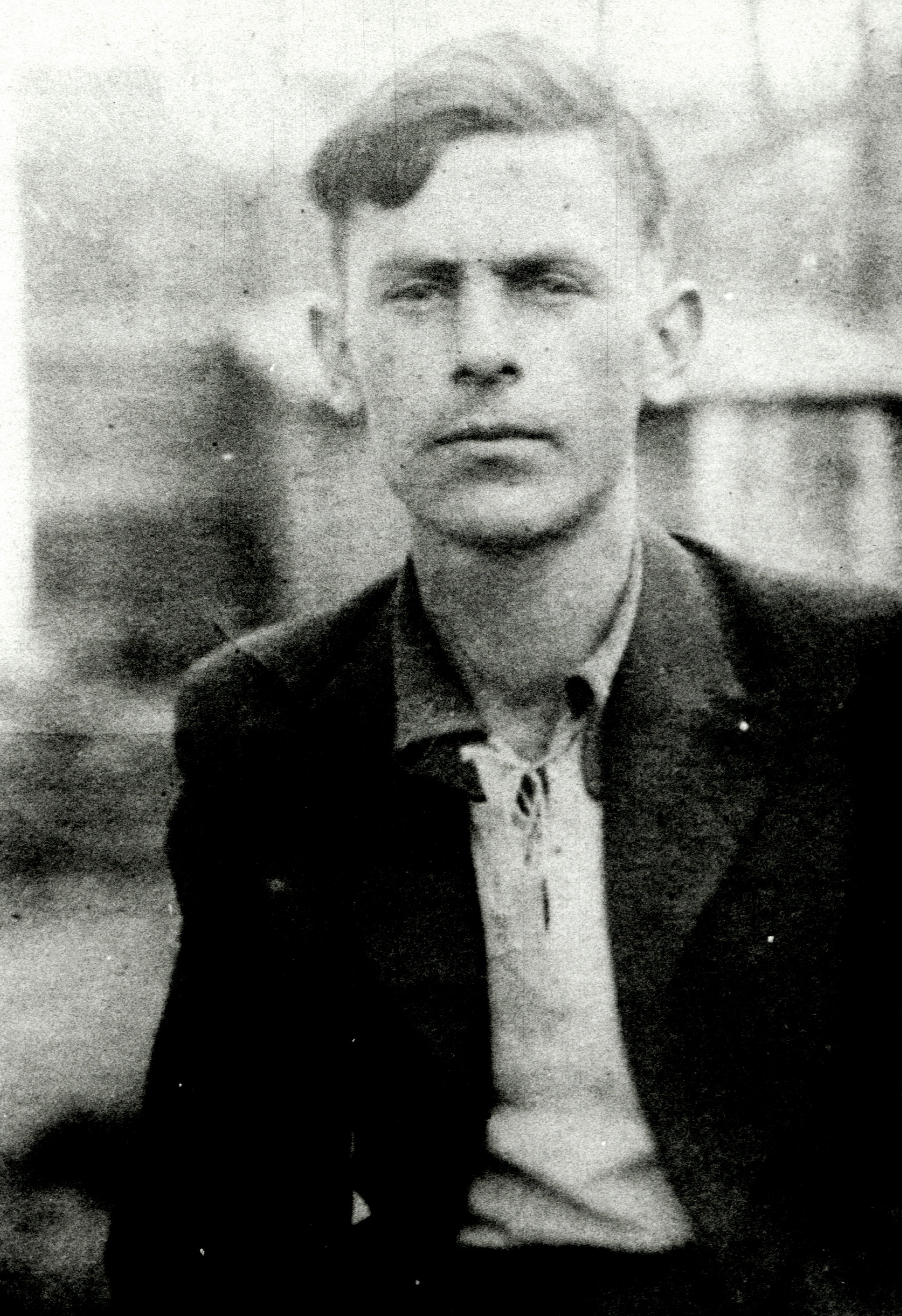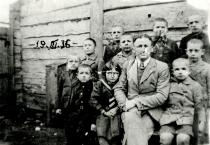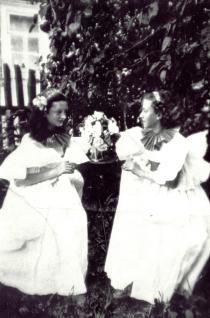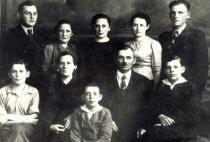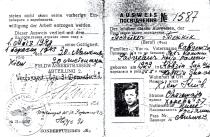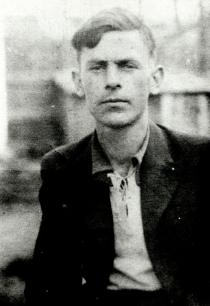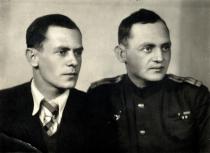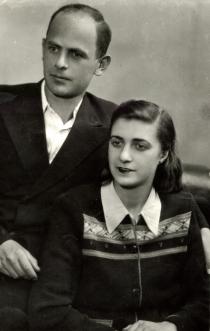This is me in front of the hostel of the Kiev River Port in Verhniy Val Street. I lived there while working in the Field Department No. 2 of River Transport during the German occupation.
In May 1942 a new manager was appointed at the Department of River Transport in Pinsk. His name was Gunter Krull. In August 1942 rumors about the extermination of the Jewish population spread. Krull told me that he wanted to rescue me and that he wished he could rescue all Jews, but that it was impossible. It was so hard to tell my mother that Krull was going to rescue me, that I had an opportunity to survive. At last, when I mustered the courage to ask my mother what she thought about this possibility she said, 'We are clutching at straws. Go for it. If you survive you have to tell the others what these rascals did to us'. Krull issued me a night-shift permit to enable me to leave the ghetto at night.
I stayed in Krull's house from 29th October till 22nd November. On 22nd November we received a letter from the Water Transport Field Department No. 2 requesting me to come to work there. Krull gave me an identity card, which had the name Peter Rabtsevich and a different place of birth on it. I also had my business certificate saying that I had to go to Kiev.
I arrived in Kiev on 28th November and settled down in a hostel. I needed to have a passport to obtain my residence permit. Krull had foreseen this and said that he had my passport in the office in Pinsk and would mail it, if necessary, but I knew that my passport had been burnt in Krull's stove. The authorities in Kiev sent a request for my passport to be mailed. Krull wrote them a letter saying that he had done that already. After a month I received a certificate at work saying that my passport had been lost. On the basis of this certificate and the documents that Krull gave me in Pinsk, I received a passport under the name of Peter Romanovich Rabtsevich, nationality Russian, at the Podol Department.
In May 1943 I turned 20. Young people of this age were to be sent to work in Germany. The problem was that I had to undergo a medical check-up. I was circumcised and just couldn't have them find out that I was a Jew. I spent a few hours at the employment office and noticed that quite a few young people told the commission that they had no health problems and volunteered to go to Germany. I decided to do the same. They told me to show my hands and feet, checked my eyes and issued all necessary documents for me to go to Germany. This was all I needed. These documents were a permit to stay in Kiev, because my work at Field Department No. 2 released me from the obligation to go to Germany. Krull supported me in Kiev in 1943. Corporal Frioff once brought me a pack of matches; I could exchange one box of matches for half a loaf of bread. In 1943 Krull came to Kiev and we saw each other in a place where nobody would notice us. We saw each other from a distance standing on the opposite sites of a street. On 6th November 1943 Kiev was liberated.
In 1997 my story was placed in the Yad Vashem museum in Jerusalem. On 10th January 1999 my German rescuer, Gunter Krull, was awarded the title of the Righteous Among the Nations' posthumously.
